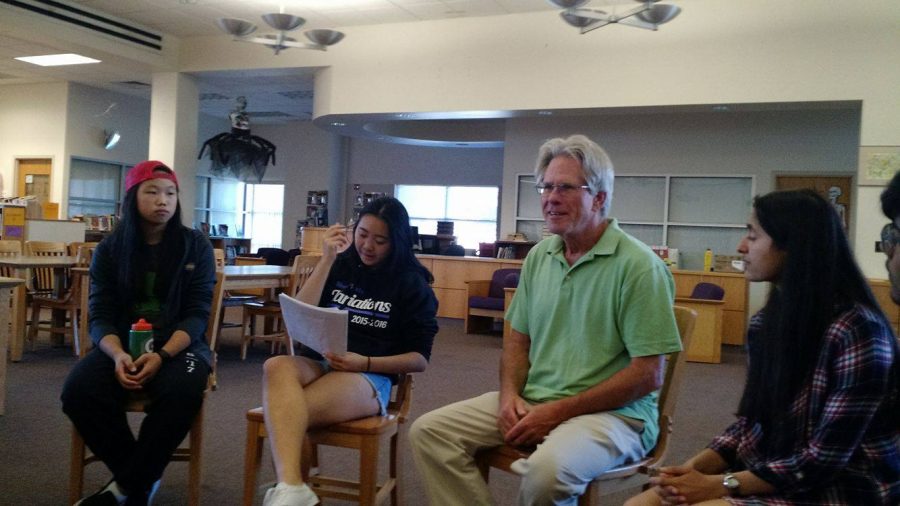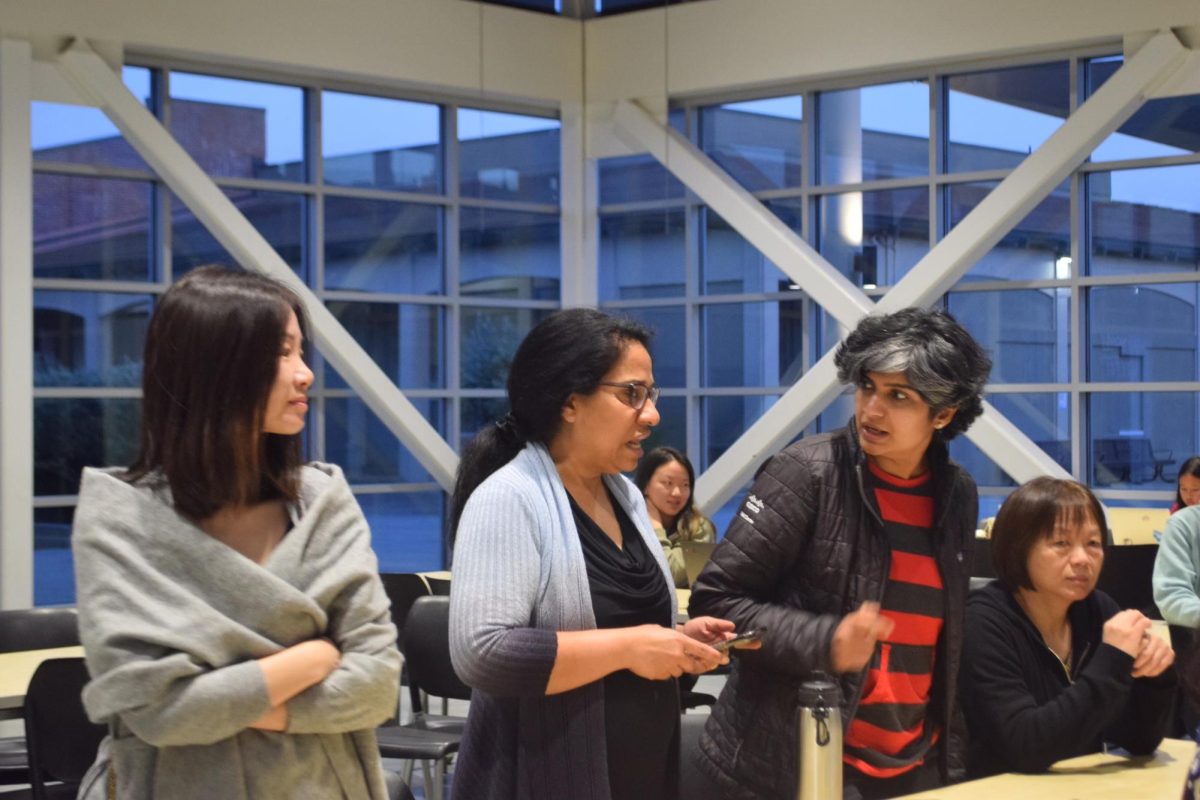Co-authored by Bill Cheng

Music blares as people slowly drift into the library. It is 10 a.m., and two tables have been fused together to form one consolidated meeting place. The members of Peer Counseling club are ringed around the spot in various states of relaxation. They are already familiar and comfortable with each other after two weeks of club meeting and bonding activities, and are ready to take the first formal steps towards becoming official peer counselors.
Prinz recalls the numerous standards one had to meet in order to become a professional, licensed counselor. Some of the qualifications included two state licensing tests and 3000 hours of supervised internship.
”I’ve definitely become not only more emotionally aware, but also socially aware.” – Candice Liou (12)
“I was doing an internship at Prospect High [School] before I was licensed, and it was a lot of crisis situations,” Prinz said. “My supervisor mentioned crisis could be an opportunity instead of just a freakout, [that] it can be an opportunity for change, for growth. I found out that there’s a Chinese expression for it, and I think it’s a really important thing to hold on to.”
Experiencing the challenge
One of the most impactful icebreakers in the training was a trust game, where trainees took turns walking around blind in a circle of students. As the subject came close to the outer borders of the circle, the ones on the outside would carefully steer the blind initiate in a safer direction to prevent a fall. Since people rely primarily on sight as their main source of sensory input, temporarily being unable to use it and relying on others to protect them reinforces the idea of having faith in humanity to some. Sophomore San Venkatesh relays her first experience.
“I knew that no one would drop me because they were told not to. It’d be really socially unacceptable to drop someone so I wasn’t really expecting to be dropped,” Venkatesh said. “People aren’t naturally really evil. If people were actually evil and wanted to do bad things then they would let you fall regardless of the instructions.”
Applying the challenge
Such activities in peer counseling are all subsets of the major pot of gold that Prinz stumbled upon eight years ago, during his very first Challenge Day. After ousting the yearly camping trip to promote bonding among students due to the problems arising through commute, Challenge Day served as a more accessible way to bond.
“We used to do something called Camp Anytown where people would go off to another city like Santa Cruz and camp out for maybe four days, but that was hard for people to accommodate in their schedules, so we looked for something different,” Prinz said. “I had attended a Challenge Day at Homestead High School, and brought it over here and it’s been pretty popular ever since.”
“People aren’t naturally really evil. If people were actually evil and wanted to do bad things then they would let you fall regardless of the instructions.” – San Venkatesh (10)
Prinz explains that Challenge Day is a unique experience that has consistently instigated revelations in individuals year after year through participation. Peer Counseling club has allowed students to actively explore the values instilled during Challenge Day, and even learn to help others open their hearts and minds using Challenge Day skills.
”I’ve definitely become not only more emotionally aware, but also socially aware,“ said Candice Liou, senior and Peer Counseling club president. “One of the things I’ve learned is questioning social norms and realizing what should be socially okay and what shouldn’t be in terms of being sensitive to others.”








